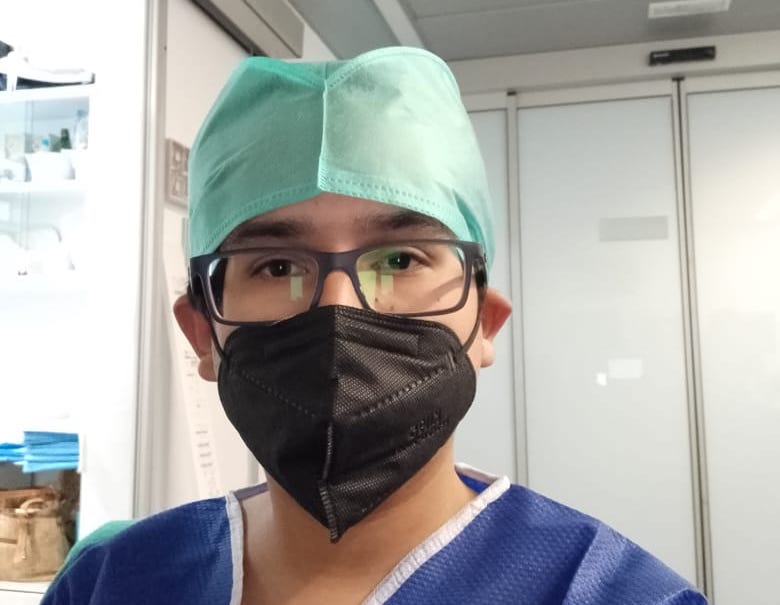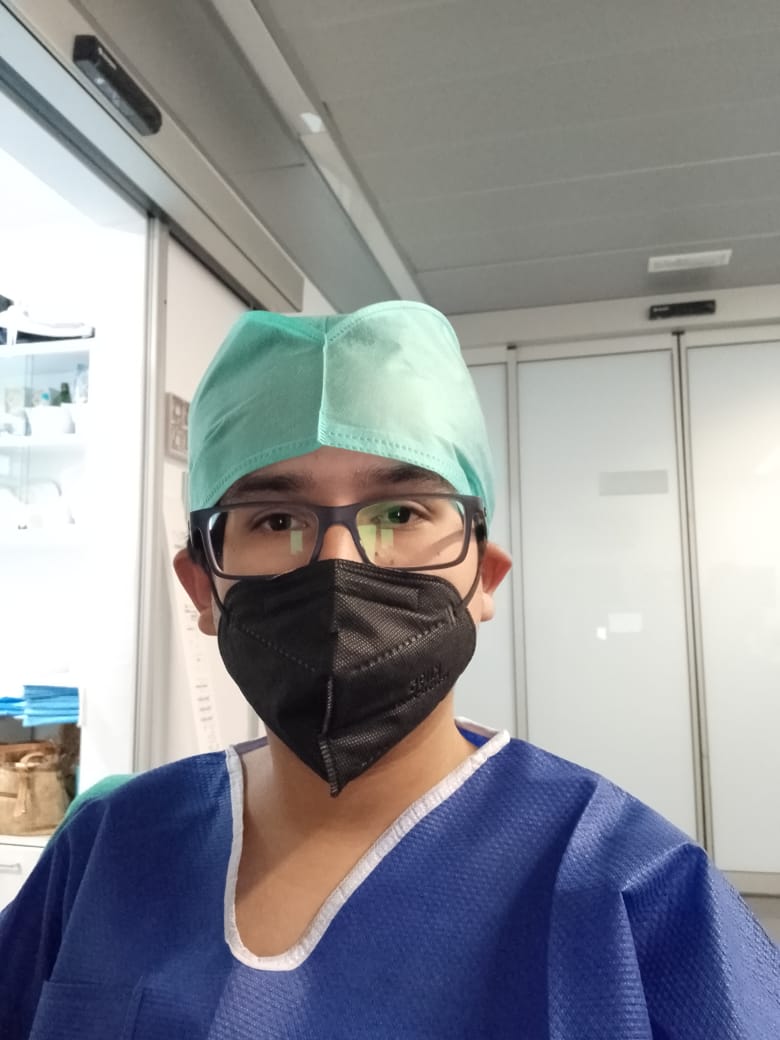
Pertama kalinya Dr. Miguel Vences merawat pasien stroke dengan trombolisis adalah pada bulan kedua tahun kedua ia tinggal di Rumah Sakit Edgardo Rebagliati Martins di Lima.
Pasiennya tiba empat jam setelah onset gejala, dan skor NIHSS 25 mengindikasikan stroke parah. Kelayakan pasien untuk trombolisis ditentukan dalam waktu 30 menit. Pada 4,5 jam mereka akan menguji batas luar standar perawatan untuk sebagian besar pasien stroke iskemik, dan ada hal lain – pasien berusia 93 tahun.
Karena mendarat di dermaga ini, Dr Vences hanya menyalahkan dirinya sendiri.
Segera setelah memulai residensi neurologinya di Rumah Sakit Rebagliati, ia mulai “mengekuk pintu” untuk mencari dukungan bagi perawatan stroke akut. Sebuah pintu telah dibuka, dan sekarang anak berusia 25 tahun itu mempelajari arti frasa, “berhati-hatilah dengan apa yang Anda inginkan”.
Dia memutuskan untuk mempelajari obat-obatan karena tantangan dalam sistem perawatan kesehatan Peru. Ia memutuskan untuk menjadi neurolog karena ada perubahan yang harus dilakukan dalam perawatan stroke dan tidak ada orang lain yang melakukannya. Tapi saat dia mempertimbangkan keputusan apakah akan merawat pasien lanjut usianya, dia “sangat takut”, katanya kepada kami dari Madrid pada hari Selasa 4 Juli 2023.
Ini adalah malam hari di Spanyol dan dia baru saja menyelesaikan hari pertamanya sebagai rekan intervensi saraf di Rumah Sakit Jiménez Díaz Foundation Madrid yang cukup terkenal. Mengapa memulai spesialisasi baru ini hampir setahun setelah menjadi ahli neurologi bersertifikat?
Jawabannya memberi tahu Anda banyak hal tentang dunia menurut Dr. Miguel Vences: Peru hanya memiliki lima ahli neuroradiologi intervensi bersertifikat yang melayani 33 juta populasinya. Ketika Dr Vences kembali ke Lima dua tahun dari sekarang, akan ada enam.
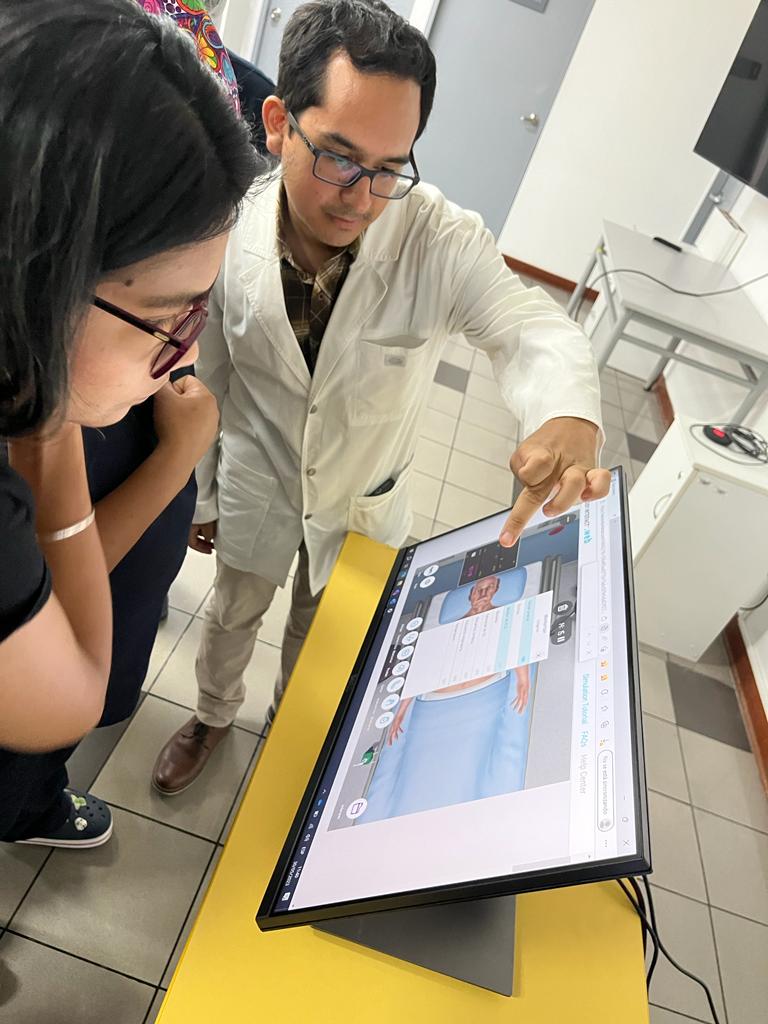
Kita tidak perlu menunggu untuk melihat apa yang dilakukan orang lain
“Jadilah perubahan yang ingin Anda lihat di dunia,” adalah frasa yang sering kali salah dikaitkan dengan Mahatma Ghandi. Bahkan dia mengatakan bahwa jika kita dapat mengubah diri kita sendiri, dunia juga akan berubah. Selain itu, diksi juga menambahkan hal yang sama – keharusan untuk berdiri dalam kesenjangan antara apa yang dimaksud dan apa yang seharusnya, disimpulkan dengan kata-kata yang Ghandi katakan: “Kita tidak perlu menunggu untuk melihat apa yang dilakukan orang lain.”
Dorongan Dr Vences untuk melakukan perubahan menemukan alat lain pada bulan April 2022 saat ia menghadiri pertemuan stroke di Kolombia bersama dengan delegasi dari negara-negara Amerika Latin lainnya. Dia masih seorang penduduk, dua bulan lagi dia tidak bisa mendapatkan uangnya. Pertemuan itu membangkitkan emosi yang besar, katanya. Mendengar apa yang sedang dicapai di negara-negara yang berbeda dengan dirinya sendiri membuatnya marah, pada awalnya, dan kemudian bertekad.
Ia juga bertemu dan terpikat oleh Prof. Sheila Martins, arsitek transformasi perawatan stroke di Brasil, yang dalam enam bulan ke depan akan menjadi presiden Organisasi Stroke Dunia. Dia kembali ke Lima dengan maksud mereplikasi contoh Brasil di Peru.
Tujuan pertamanya adalah mendapatkan sertifikasi WSO untuk Rumah Sakit Rebagliati, proses kompleks dan terkadang sulit yang akan menghuninya selama beberapa bulan ke depan. Ia mengingat kembali pelatihan, pelatihan ulang, dan peninjauan proses dan jalur yang “gila” untuk memenuhi standar ketat di seluruh rantai perawatan. Namun, betapapun menariknya perbedaan yang diberikan oleh sertifikasi WSO, ini bukan tentang menggantung sesuatu di dinding, kata Dr Vences.
Penerapan strategi berbasis bukti di Rumah Sakit Rebagliati membuahkan hasil yang diinginkan. Pengambilan keputusan meningkat berkat kejelasan yang lebih besar tentang kriteria inklusi; mortalitas menurun, tingkat pengobatan meningkat.
“Ini bukan tentang pengakuan, tetapi agar semua pasien dapat memiliki kesempatan lain,” kata Dr Vences. “Saya tahu sertifikasi akan memberikan perjalanan yang lebih baik bagi pasien. Semua poin yang memerlukan kepatuhan akan meningkatkan perjalanan tersebut.”
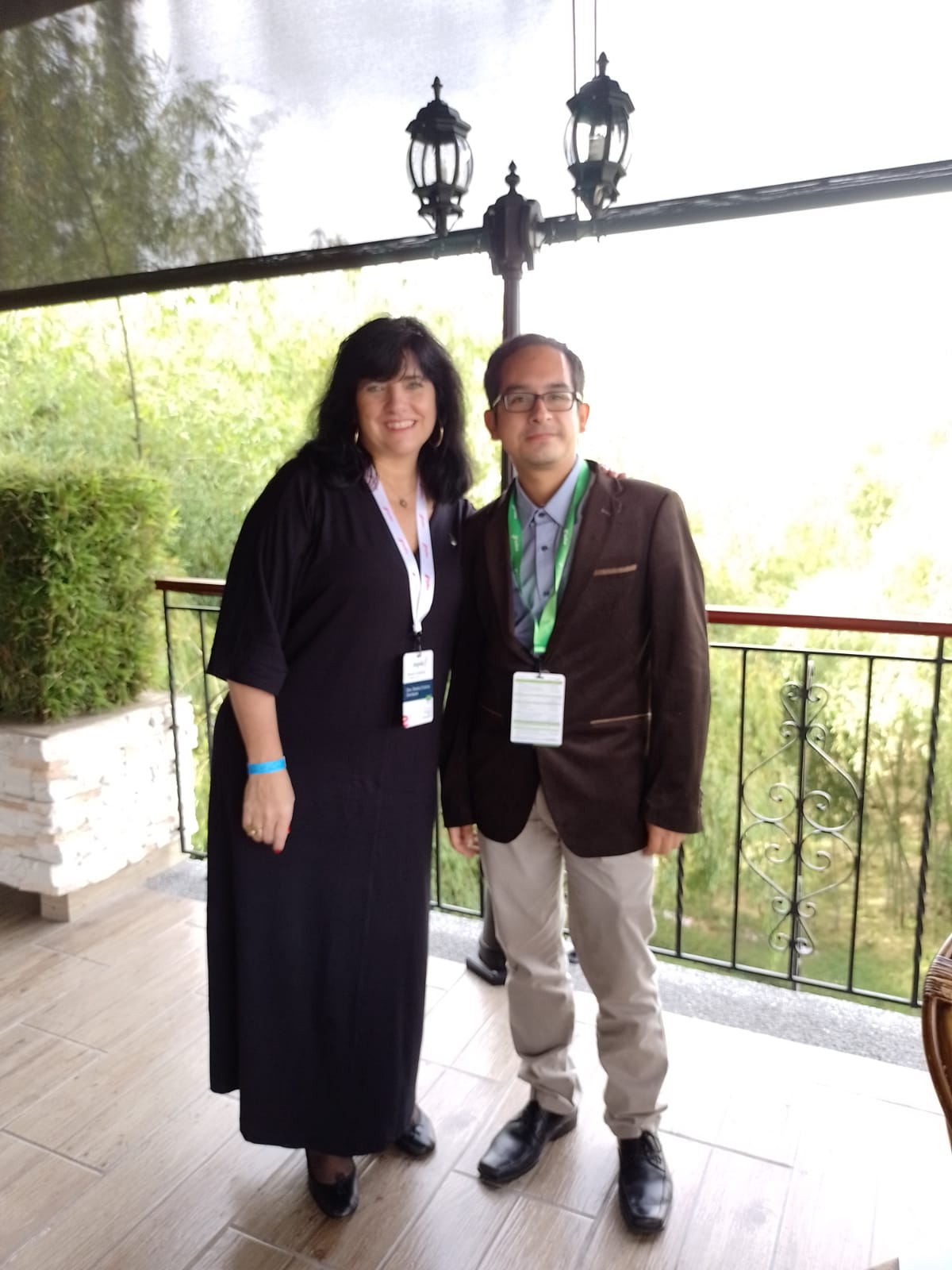
Keputusan sulit lainnya
Miguel sudah tahu bahwa ia akan pergi ke Madrid ketika pada bulan Desember 2022 ia bergabung dengan San Borja Clinic, sebuah rumah sakit swasta di Lima yang ingin mulai mengobati stroke. Periode pelatihan intensif lainnya yang diadakan, dibantu oleh dukungan dan sumber daya Angels dan antusiasme kepala perawatan kritis rumah sakit (Dr. José Portugal). Pada akhir Mei saat pasien stroke masuk rumah sakit, mereka siap.
Seperti kasus pertama Dr Vences di Rebagliati, pasien pertama di San Borja menyajikan pertanyaan, tetapi karena alasan yang kontras. Pasien ini adalah guru perempuan berusia 35 tahun, dengan afasia dan skor NIHSS 3 yang mengindikasikan stroke ringan, tetapi dalam kasus pasien ini kondisinya melumpuhkan. Meskipun bukan kontraindikasi mutlak, skor NIHSS kurang dari 5 sering digunakan sebagai kriteria pengecualian relatif untuk trombolisis.
“Itu adalah keputusan yang sulit,” Dr Vences mengakui. “Anda mulai meragukan diri sendiri.” Pada akhirnya, probabilitas bahwa tanpa pengobatan pasien akan mengalami kesulitan berbicara, membuat keputusan. Dan seperti halnya pasiennya yang berusia 93 tahun, keputusan yang sulit memberikan hasil yang sukses.
Satu bulan kemudian, Miguel Vences tiba di Madrid, penerima manfaat Beasiswa SILAN-HUFJD yang ditawarkan di Jiménez Díaz Foundation kepada spesialis medis yang ingin melanjutkan pelatihan mereka di bidang Neuroradiologi Intervensi. Dokter neurologi dan radiolog serta ahli bedah saraf ini hadir karena berbagai alasan; hanya satu yang hadir untuk menjadi ahli intervensi saraf keenam di negaranya.
Ini pertama kalinya dia bekerja di Madrid, kata Dr Vences. Pertama kalinya di Spanyol. Ini pertama kalinya dia berada di Eropa, jadi pikirkanlah. Dia merindukan masakan Peru dan keluarganya, tentu saja.
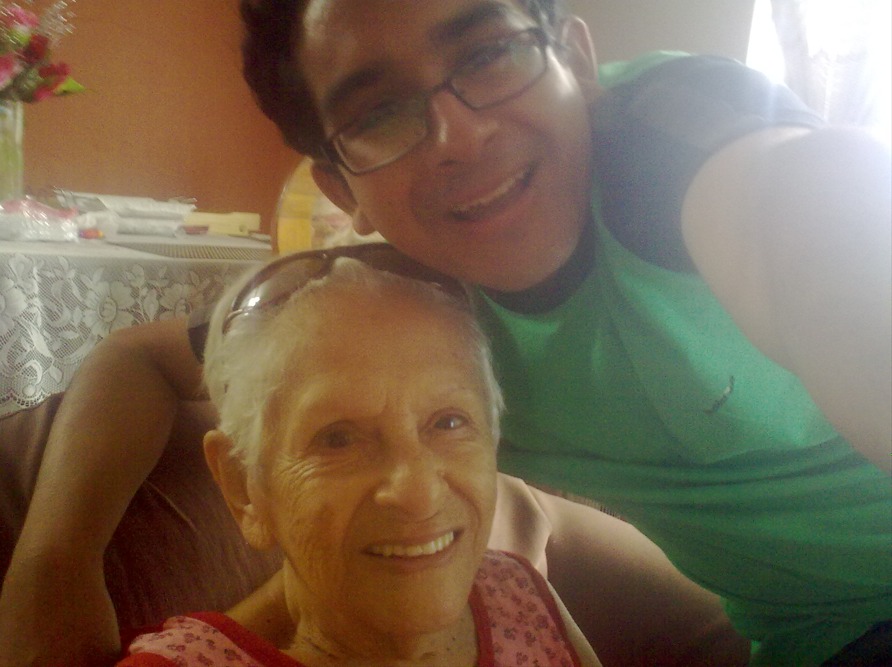
Suara pengalaman muda
Lebih dari 9.000 km dan satu lautan di zona waktu yang berbeda, Dr Vences terus mendorong perubahan di Peru. Bagi konsultan Angels, Sol Plamenatz, ia adalah, bahkan pada usia 30 tahun, “suara pengalaman” ketika memberikan saran kepada rumah sakit lain mengenai rute sertifikasi. Dengan gelar master di bidang epidemiologi klinis dan magang di bidang stroke dan neurosonologi, ia telah menerbitkan banyak artikel dalam jurnal ilmiah, merupakan guru universitas dan anggota aktif Asosiasi Neurologi Peru, Grup Stroke Peru dan ALATAC, sekelompok dokter muda yang membentuk Gugus Tugas Stroke Remaja Amerika Latin.
Anda tidak hanya membutuhkan dokter untuk membawa perubahan, ia menjelaskan. “Anda membutuhkan masyarakat dan aliansi untuk menciptakan perubahan di tingkat yang berbeda, melibatkan kementerian kesehatan mengenai pedoman nasional dan jaringan tele stroke, memotivasi dokter untuk menjadi neurolog, dan tertarik dengan stroke.”
Akhirnya ada juga alasan pribadi mengapa Miguel Vences memutuskan untuk berdiri di jurang pemisah dan menjadi perubahan yang ingin ia lihat.
Tiga kali stroke memberikan pukulan kepada keluarganya; ia tahu bahwa bukan hanya kehidupan pasien yang berubah karena stroke. Saat tumbuh bersama neneknya dan seorang bibi dari pihak ayah, dia didorong untuk mengikuti hatinya dan mengubah hal yang tidak dia sukai.
Salah satu hal yang tidak ia sukai adalah stroke dan kegagalan untuk mengobatinya. Dan dia tidak menunggu untuk melihat apa yang dilakukan orang lain.
